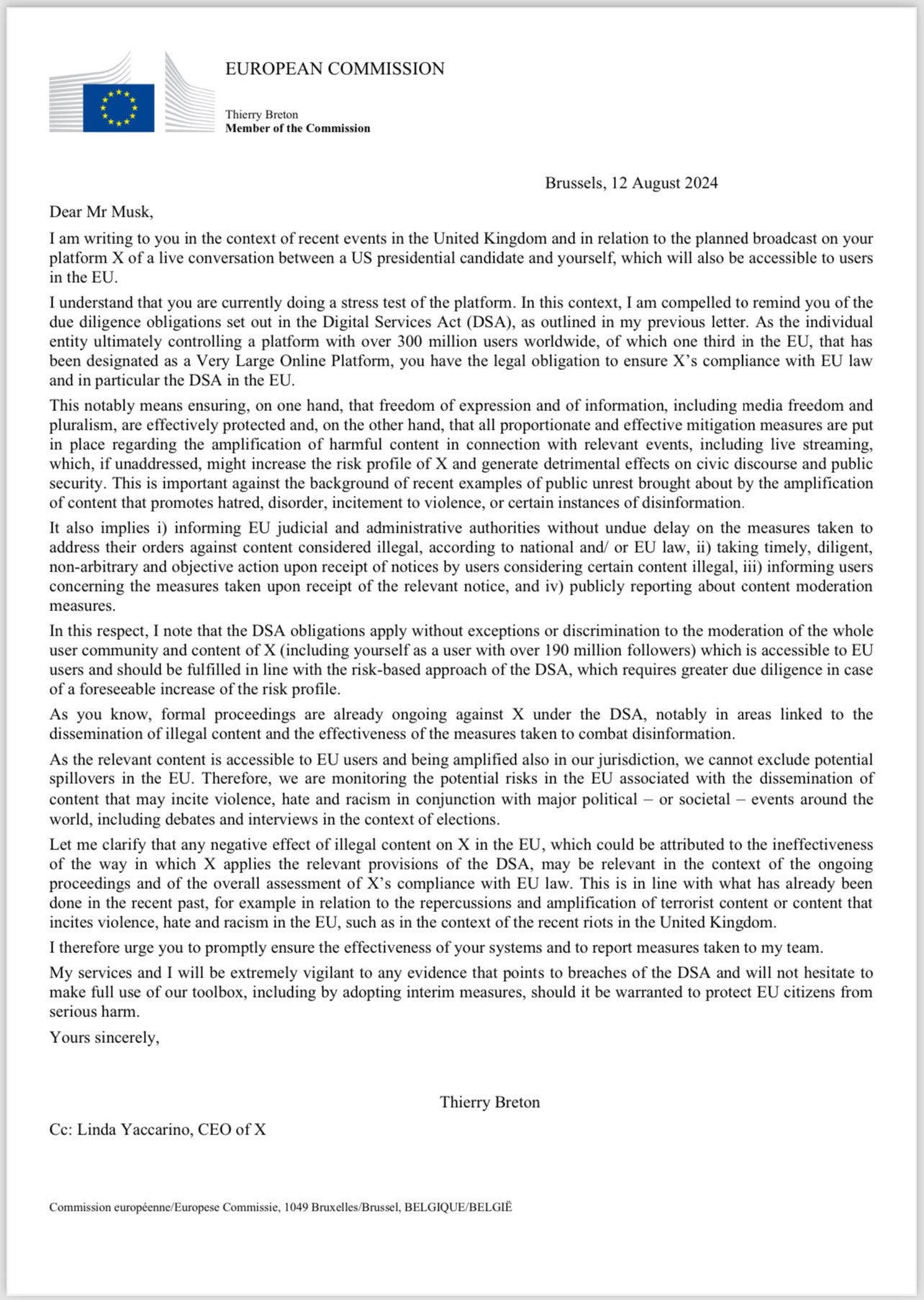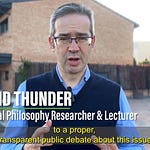Last Monday (12/8), EU Internal Market Commissioner Thierry Breton published an open letter to Elon Musk on Twitter/X, warning Musk to take measures to contain “harmful content.” Addressing himself to Musk, Mr Breton said he was writing “in the context of recent events in the United Kingdom and in relation to the planned broadcast on your platform of a live conversation between a US presidential candidate and yourself, which will also be accessible to users in the EU.”
Now, on its face, it sounds reasonable that platforms should have to restrict “harmful content.” If we were dealing with things like child pornography or terror plots, we could understand that Twitter/X is under a legal obligation to remove harmful content. However, it is much harder to understand how a social media platform could reasonably find itself under a legal obligation to remove or restrict a public interview with a U.S presidential candidate. What could be the vital public interest that would justify curtailing political discourse of that nature?
How exactly might the Musk-Trump interview fall foul of the Digital Services Act? Well, the Digital Services Act considers “harmful” content in need of “mitigation measures” to include, among other things, “incitement to hatred,” threats to “civic discourse,” the threat of “misinformation” and “disinformation,” and threats to “public security.” All of these terms are notoriously ambiguous and open to abusive and self-serving interpretations. They could easily be stretched to include a political interview with a U.S. presidential candidate.
For terms such as “disinformation,” “hate speech,” and “civic discourse,” are essentially political terms, not legal terms. They have no clear and widely accepted meaning in the law and certainly none in the context of lively public debates. As such, it was only a matter of time before they would be used to further the political ideology and interests of the European Commission.
You can support independent commentary and analysis by upgrading to a paid subscription today, if you have not done so already.
Don’t forget that you can also find me on Twitter/X, Youtube, and Telegram. My academic profile and publications are listed at davidthunder.com.













Share this post